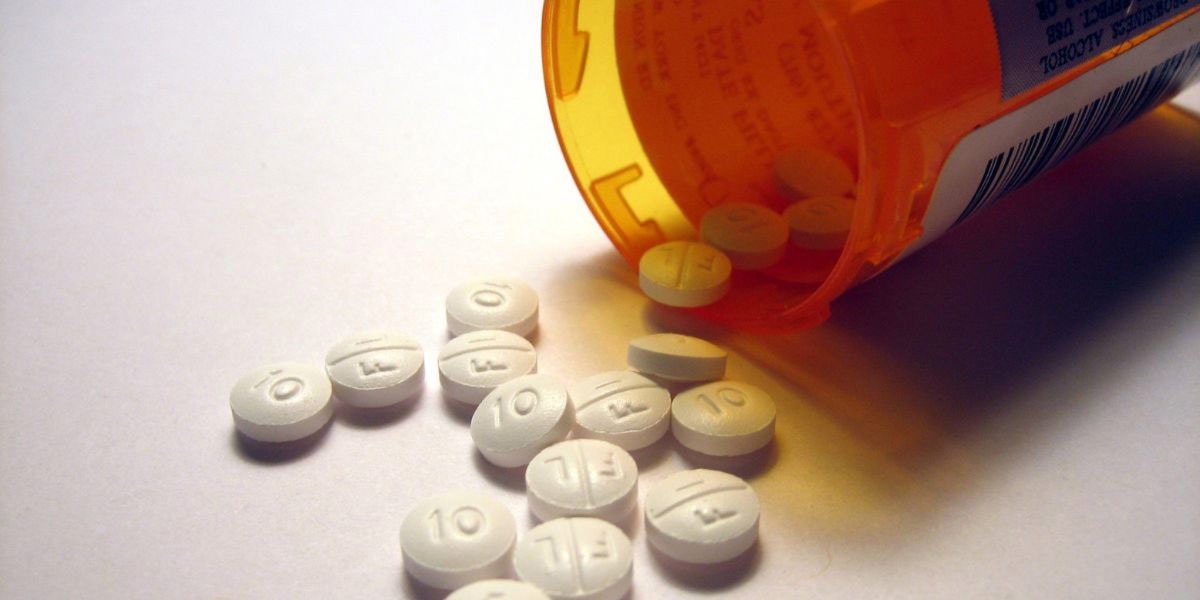Lexapro Addiction: Signs, Effects, and Treatment


Medical Writer:
Reviewer:

Johnny Kim
Executive Psychotherapist
Medical Writer:
Reviewer:

Johnny Kim
Executive Psychotherapist
Escitalopram, also recognized as Lexapro, doesn’t result in physical addiction, but it’s usual for individuals to develop a mental reliance on it. Often, individuals struggling with substance abuse are also dealing with mental health challenges, with both situations intensifying each other.
Lexapro is a frequently prescribed antidepressant medication. It is also utilized to handle a range of prevalent mental health conditions that could lead to dependency.
Table of Contents
ToggleSome people with substance use disorders might mistakenly think that their progress is only because of Lexapro. They might believe that taking more of the medication will make them feel even better.
Lexapro doesn’t make you feel high right away like some drugs do, but misusing it can lead to addiction.
What Is Lexapro?
Lexapro functions as a selective serotonin reuptake inhibitor (SSRI), a type of antidepressant that harmonizes the brain’s chemical balance to alleviate symptoms of depression, anxiety, and other mental health issues stemming from diminished serotonin levels.
The range of conditions that generally respond well to treatment with Lexapro (escitalopram) includes:
- Severe depression disorder
- General anxiety disorder (GAD)
- Panic-related disorders
- PTSD or post-traumatic stress disorder
- Premenstrual dysphoric syndrome (PMDS)
- OCD or obsessive-compulsive disorder
- Social anxiety disorder
- Agoraphobia, apprehension of open or congested spaces
What Does Lexapro Look Like?
Lexapro comes in round, white pill form in 5, 10, or 20 mg strengths. The dosage strength is marked on the reverse side of each tablet.
In the US, Lexapro is a prescription drug that can cause withdrawal symptoms, but it is not considered a controlled substance. The abuse of antidepressants results in psychological addiction, an area less explored compared to substances that induce immediate physical dependency and addiction. Nonetheless, the development of an addiction to antidepressants is a recognized condition that satisfies the criteria for a substance use disorder diagnosis.
How Does Lexapro Work?
Lexapro helps your brain and body use serotonin more effectively, keeping it in your system longer.
Serotonin, a naturally produced neurotransmitter, regulates mood, motivation, attention span, digestion, body temperature, blood circulation, and various critical functions. When there are interferences in the production of serotonin, caused by either biological factors or external factors such as drugs and alcohol, mood swings and corresponding changes in behavior can happen.
Lexapro stops serotonin from being absorbed too soon, directing it toward its required destination. Picture serotonin as a vehicle; Lexapro ensures it takes the correct exit to arrive where needed. Upon serotonin attaching to its target receptor, the brain acknowledges and employs it to enhance mood and bolster functionality.

What Does Lexapro Do to Your Brain?
Lexapro modifies the brain’s interaction with serotonin, influencing its utilization and processing. In a healthy brain, receptors connect with serotonin; it performs its job, and then the brain reabsorbs it. People with mental health issues experience a problem in which their bodies reabsorb serotonin too quickly.
This stops serotonin from getting to the right parts of the brain, which can cause a shortage of important chemical reactions.
Lexapro Immediate Effects
Lexapro’s effects are not instantaneous like those of narcotics. It takes time for Lexapro to start working in the brain.
Lexapro takes time to start working in the brain. You can feel the effects in as little as 72 hours or as long as four weeks. The time it takes varies depending on the individual and the dosage.
When Lexapro attains sufficient concentrations in the system, its effects can include:
- Enhanced energy levels
- Better memory function
- Increased attention span and focus
- More regular sleep patterns
- Greater appetite
- Decreased symptoms of depression and anxiety
Like other addictive drugs, Lexapro can cause tolerance to develop in people. Lexapro, like other addictive drugs, can cause tolerance to develop in people. This means that users may reach a point where their symptoms stop improving, even if they keep taking the same dose. This can create a plateau effect, where users feel stable but do not see any further improvement.
If people feel Lexapro isn’t working, they may take more or mix it with alcohol to make it stronger. This action can pose a danger and should be avoided. These actions are indicative of prescription drug abuse, which can have dangerous consequences and an increased risk of addiction.
Side Effects of Lexapro
Side effects from Lexapro are most common at the initiation of treatment or when the dosage is increased; typically, these effects diminish as the body adapts.
Frequent side effects associated with Lexapro include:
- Nausea
- Headaches
- Dizziness
- Sweating
- Constipation
- Body temperature changes
- Suffering from dry mouth
Long-term use of Lexapro can lead to side effects such as weight gain and sexual dysfunction.
Potential side effects from Lexapro abuse include:
- Problems with memory
- Hallucinations
- Disruptions in sleep patterns
- Brain zaps are described as sensations of shock and tingling
- Anorgasmia, which is difficulty becoming aroused or achieving orgasm
- Psychological dependence
- Serotonin syndrome
- Symptoms of withdrawal upon attempting to cease use
Lexapro Addiction and Serotonin Syndrome
As previously noted, Lexapro boosts serotonin levels in the brain; taking Lexapro in very high doses or using it alongside other substances that increase serotonin, like MDMA or Adderall, can result in a critical and possibly deadly condition called serotonin syndrome. This risk is also present when consuming alcohol while on antidepressants.
If you or someone you know is experiencing harmful side effects or serotonin syndrome, seek medical help immediately. Addressing these issues promptly is important to ensure proper treatment and care. Do not hesitate to reach out to a healthcare professional for assistance. Your health and well-being are the top priority in these situations.

Lexapro Withdrawal Symptoms
A person who suddenly stops taking Lexapro is likely to encounter withdrawal symptoms. If you gradually reduce your medication with guidance from a doctor, you might experience withdrawal symptoms. These symptoms can occur because of alterations in the serotonin levels in your brain.
When stopping Lexapro, some people may have their mental health symptoms return, and they may be even worse than before. Adjusting to life without Lexapro can be difficult for some individuals. The symptoms that Lexapro was supposed to treat may come back and may be more severe.
Symptoms of withdrawing from Lexapro include:
- Headaches
- Nausea
- Vomiting
- Diarrhea
- Symptoms resembling the flu
- Chills
- Vertigo
- Sensations akin to motion sickness
- Dizziness
- Mental cloudiness
- Confusion
- Brain zaps, or sensations of electric shocks in the limbs
- Anxiety
- Troubling dreams
- Disturbances in sleep
- Panic episodes
- Depression
- Suicidal thoughts
If you have been taking a lot of Lexapro, gradually decreasing the dose may not be safe. In this case, it is best to have a medically supervised detox. Nonetheless, undergoing medical detox is merely the initial phase. A thorough addiction treatment program should follow as the subsequent step in the recovery process.
Lexapro Addiction Treatment
At White Oak Recovery Center, we recognize the crucial role of mental health in overcoming substance use disorders. We collaborate intimately with our clients to facilitate a life free from addiction.
We offer on-site medical detox services with 24/7 medical supervision to ensure your safety during withdrawal. We provide a safe and welcoming home for you to heal comfortably. We offer effective treatments to help you understand and manage your mental health. We also help you positively deal with addiction triggers.
Our compassionate treatment professionals are ready to explore your treatment possibilities with you. Contact us today; a significant journey towards recovery lies ahead.

Am I covered for addiction treatment?
Your insurance may cover treatment. Call now for an entirely free and confidential assessment. Recovery starts with a phone call.

- Kristen, Landy, et al., “Escitalopram.” StatPearls, Nov. 2023.
- Ferguson, James M., et al., “SSRI Antidepressant Medications: Adverse Effects and Tolerability.” The Primary Care Companion to the Journal of Clinical Psychiatry, Feb. 2001.
- Henssler, Jonathan Dr., et al., “Antidepressant Withdrawal and Rebound Phenomena.” Deutsches Arzteblatt International, May 2019.
- Haddad, P., “Do Antidepressants Have any Potential to Cause Addiction?” J Psychopharmacol, 1993.
- Cartwright, Claire, et al., “Long-Term Antidepressant Use: Patient Perspectives of Benefits and Adverse Effects.” Patient Prefer Adherence, Jul. 2016.
Medical Disclaimer:







